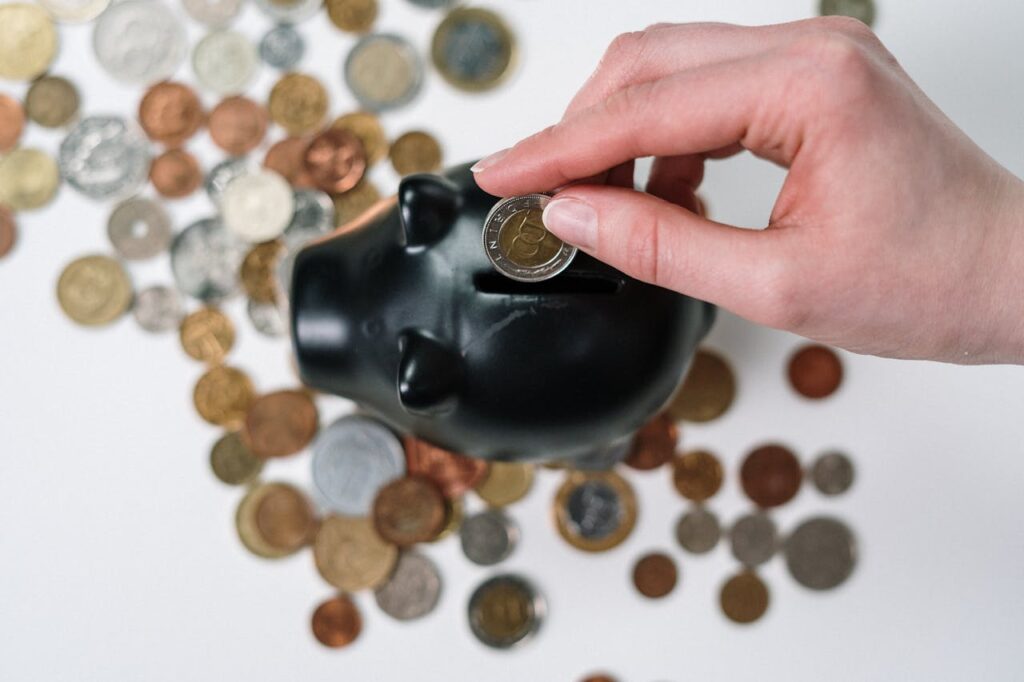
Are you looking to secure your financial future with a tried-and-true investment option?
The most common answer to this question is to go for a humble Fixed Deposit (FD).
No one can deny that due to its reputation for stability and reliability, FDs have long been a cornerstone of investment portfolios worldwide for decades. Especially, our parents’ generation was quite crazy about this FD.
Why won’t they be?
After all, FD offers a guaranteed return at a fixed interest rate & it shields your money from the volatility of the market.
In simple words, FD provides a safe haven for your hard-earned money (according to many).
Does it really?
In reality, while FDs provide stability, they may not always offer the highest returns, especially when considering inflation over the long term.
Therefore, we thought it is crucial to discuss if FD can really be considered as a timeless solution for wealth preservation anymore.
Let’s see.
First, what is the definition of FD?
Here it is- “A Fixed Deposit (FD), also known as a term deposit or time deposit, is a financial instrument offered by banks and financial institutions where an individual deposits a certain amount of money for a predetermined period at a fixed interest rate.”
Well, to make it simple,
Fixed deposits are like your financial best friend, offered by banks and financial institutions. You stash away a sum for a set period, and they thank you with interest – sweet deal, right?
You’re in control of your money here – pick the tenure that suits you, starting from just 7 days.
And guess what?
Even after it matures, you can keep the money train rolling by renewing both the principal and interest.
FDs typically offer higher interest rates compared to regular savings accounts, making them an attractive option for individuals looking to earn a stable return on their savings while minimizing risk.
Upon maturity, the investor receives the initial deposit amount along with the accrued interest.
Now that you have a clear idea of this financial instrument, let’s see in short why people like it so much. Yes, I am talking about FD benefits.
So, why is FD beneficial for your financial portfolio?
- Guaranteed Returns:
Here, you know exactly how much you’ll earn because the interest rate is fixed and so is the tenure of the deposit.
- Stability:
Such deposits offer a stable and predictable return on your investment and of course, it’s a low-risk financial instrument too. The FDs are typically insured by government schemes in many countries.
- Flexibility:
You can choose the tenure of your fixed deposit based on your financial goals and needs and you are free to close the FD whenever you want (if not tax saving)
- Regular Income:
If you opt for a monthly or quarterly interest payout, fixed deposits can provide a steady source of income even.
- Tax Benefits:
Tax Benefits: In some countries, the interest earned on fixed deposits may be eligible for tax benefits, helping you save on taxes. In India, if you are okay with locking your money for a specific period, you can save the tax on the earned interest through tax-saving FDs.
- Reinvestment Options:
Upon maturity, you have the option to reinvest the principal and interest, capitalizing on potentially higher interest rates or adjusting your investment strategy as needed. In a nutshell, if you select maturity instruction “renew the principle and interest” you wont have to be bothered about that money at all.
No one is saying that FD doesn’t give all these benefits, but the question is are these benefits enough to keep your money in Fixed Deposit. I don’t think so.
How relevant is FD for your future?
Well, these days, the banks offer FD interest rates upto 7% and the inflation rate as per Govt. document is around 5.09%. On top of that, for every interest earned you are liable to pay government the income tax as per your slab.
So, with your money wholly kept on Fixed Deposits, are you winning?
I don’t think so.
If the inflation rate and income tax on the earned interest combined more than 7%, you are earning a negative return for holding your money in Fixed Deposit for a specific tenure. As far as I can understand, that is no ‘Safety from FD’ at all.
Let’s see if we can find any other reason to convince you not to keep all your money in Fixed Deposits.
Come on.
- Limited Growth Potential:
The returns of FD may not keep pace with inflation over the long term, resulting in diminished purchasing power.
- Opportunity Cost:
FDs tie up your funds for a predetermined period, limiting your ability to seize potentially more lucrative investment opportunities that may arise in the future.
- Low Interest Rates:
In a dynamic economic landscape, interest rates on FDs may not always remain competitive, leading to suboptimal returns compared to alternative investment options such as direct equity, mutual fund etc.
- Tax Inefficiency:
The interest earned on FDs is subject to taxation at your marginal tax rate, reducing your net returns.
- Technological Disruption:
As financial instruments continues to evolve, traditional FDs may face challenges in remaining relevant and competitive, especially as newer investment platforms offer innovative features and higher returns.
Now that we’ve weighed the pros and cons of fixed deposits in today’s fast-paced world, it’s decision time: stick with the trusted FDs or diversify into a galaxy of investment alternatives?
It’s your call.
All we can tell you is- While FDs offer stability, they might not be superhero enough to conquer the inflation monster in the long haul. It’s like choosing between a cozy blanket and a high-speed jet – sure, the blanket’s comfy, but the jet gets you where you wanna go faster!
So, why settle for just one when you can assemble an unstoppable squad of financial investment alternatives to combat inflation and maximize wealth growth?
In the end, it’s all about finding the right balance between stability and growth, ensuring your money doesn’t just survive but thrives in the ever-evolving financial universe.
So, what’s your move? Let us know in the comment below what percentage of your money you are still thinking of keeping in FD and why.
This is it for today.
Signing off!!


